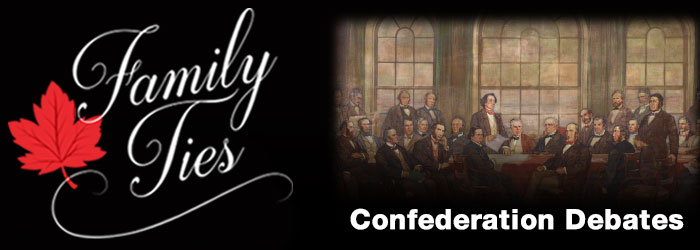
Previous | Exhibit Home | Next
Shortly after his marriage in 1862, George re-entered politics with a renewed mission. With Anne in his life, he saw the value of compromise.
Canadian politics had changed too. Would the American Civil War, having taken thousands of lives south of the border, come to Canada? With growing political instability, George agreed to enter the “Great Coalition” in 1864. He promised to work with John A. Macdonald, George-Étienne Cartier, and other political rivals to achieve a new political system in Canada: a federal union with representation by population.
A flurry of activity began. At the Charlottetown Conference in September 1864, George and other Canadian delegates asked the Maritimes to join the federal union (Nova Scotia and New Brunswick agreed, but Prince Edward Island and Newfoundland ultimately declined). The Quebec Conference a month later outlined the new country’s political structure. Visits to London later in 1864 and 1865 helped gain the required support of the British government. Despite bumps in the road, Queen Victoria gave assent to the British North America Act and the Dominion of Canada became a reality on July 1, 1867.
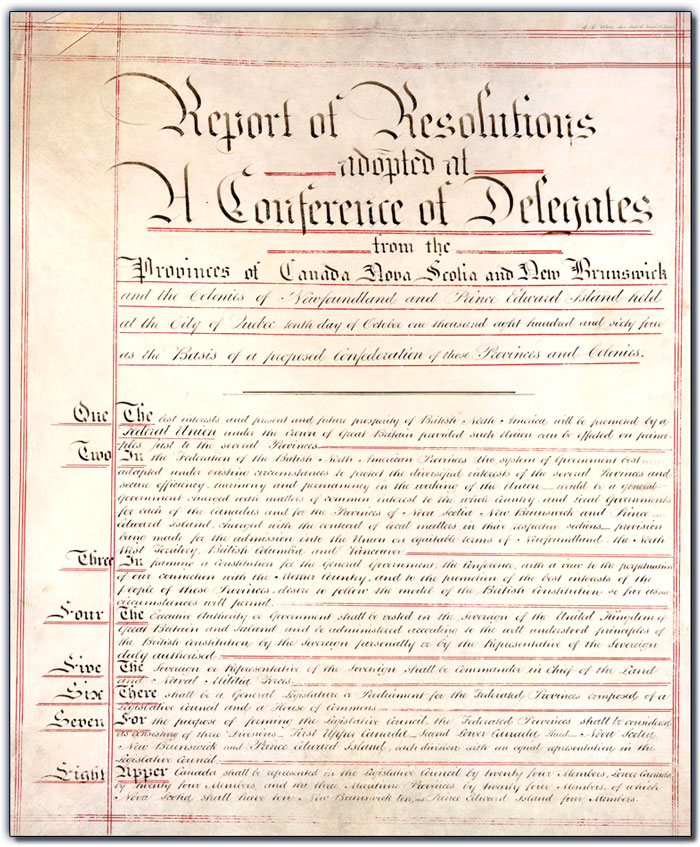
Click to see a larger image
Quebec Resolutions, 10 October 1864
F 775, 1964, Item 7 (MU 2147)
Archives of Ontario, I0032673
[Page 1]
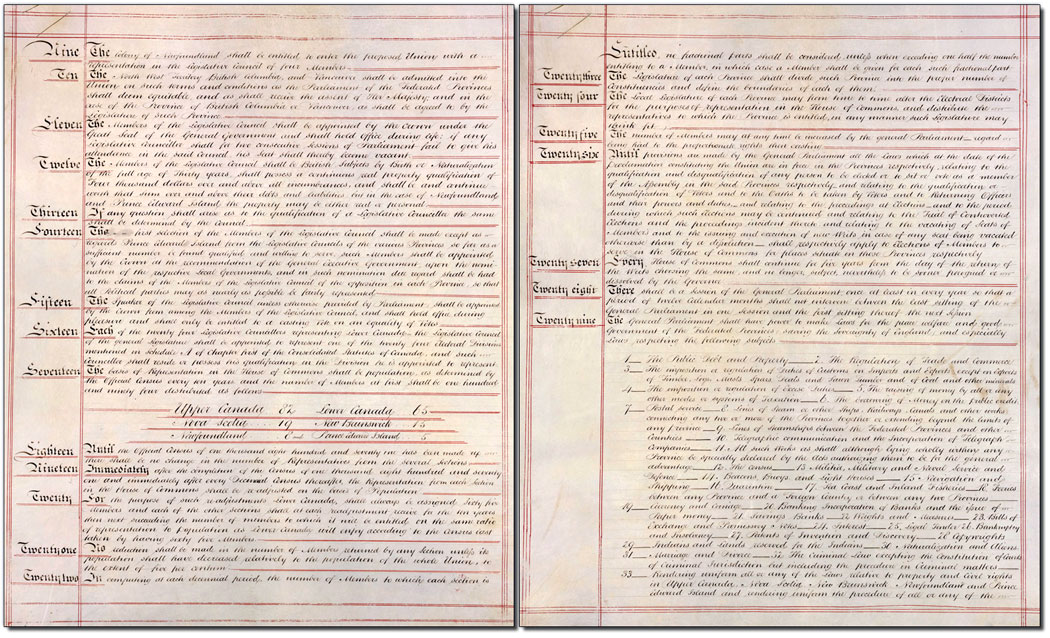
Click to see a larger image
Quebec Resolutions, 10 October 1864
F 775, 1964, Item 7 (MU 2147)
Archives of Ontario, I0073698, I0073699
[Page 2 & 3]
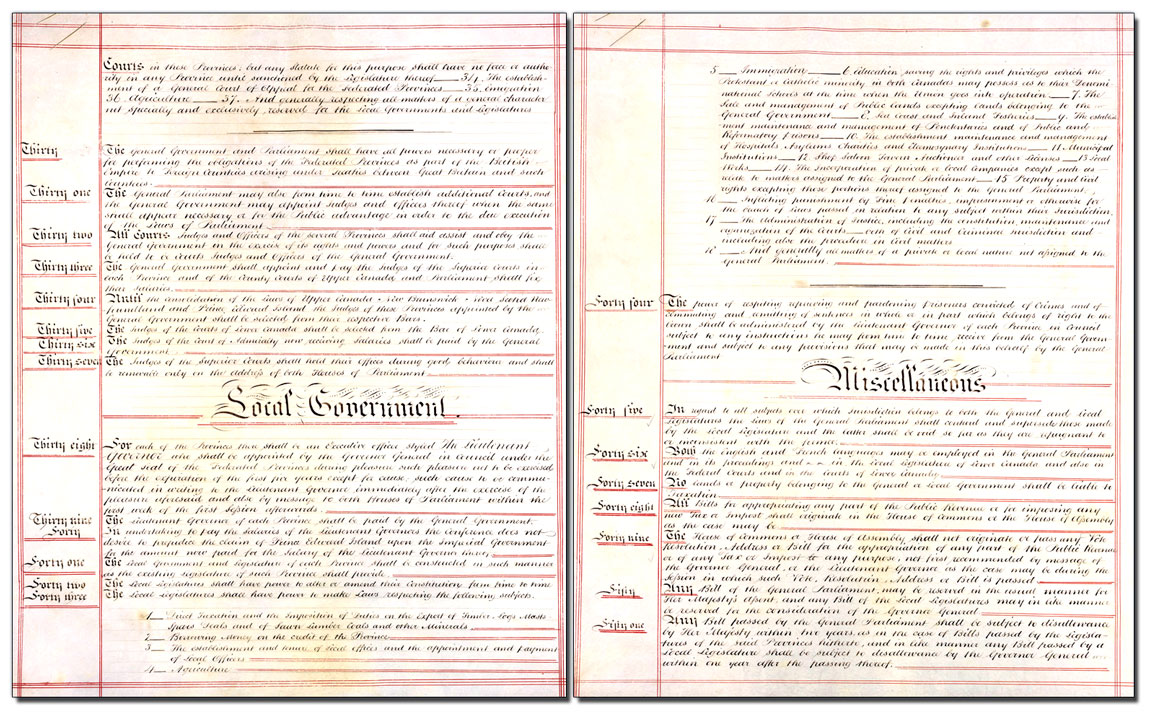
Click to see a larger image
Quebec Resolutions, 10 October 1864
F 775, 1964, Item 7 (MU 2147)
Archives of Ontario, I0073701, I0073702
[Page 4 & 5]
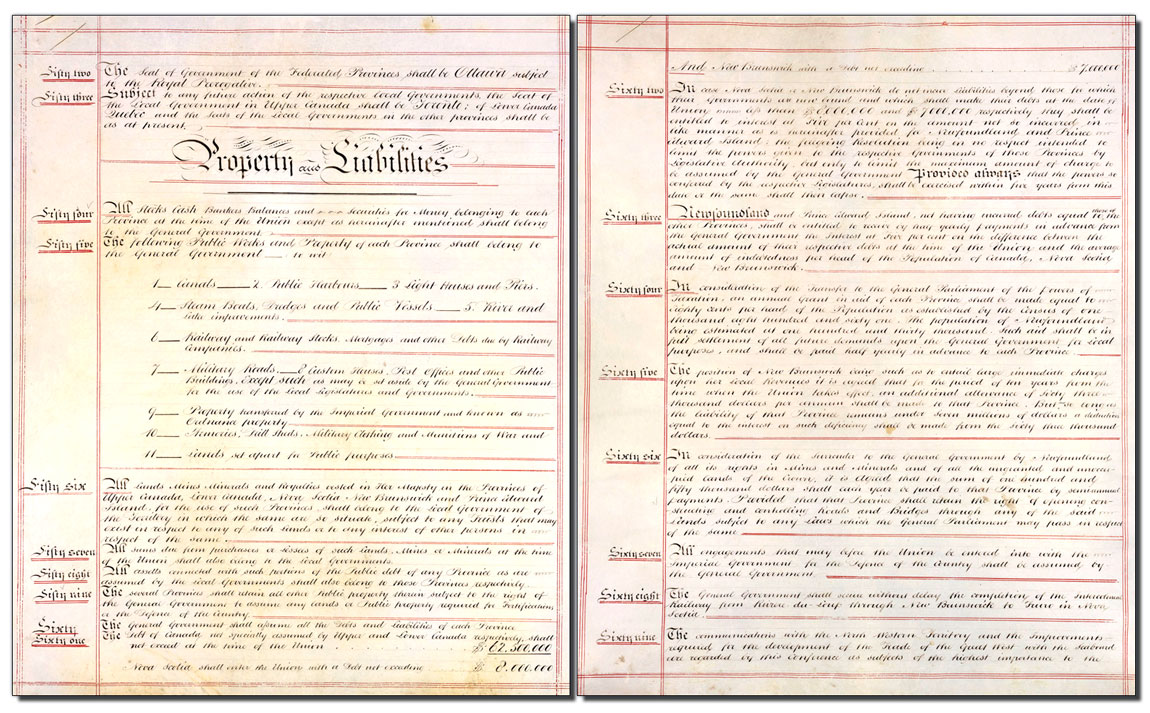
Click to see a larger image
Quebec Resolutions, 10 October 1864
F 775, 1964, Item 7 (MU 2147)
Archives of Ontario, I0073703, I0073704
[Page 6 & 7]
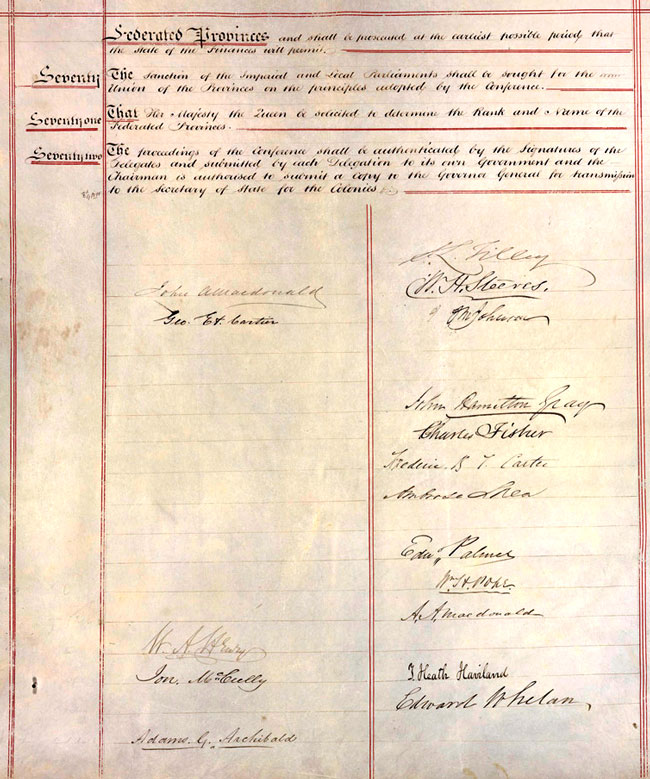
Click to see a larger image
Quebec Resolutions, 10 October 1864
F 775, 1964, Item 7 (MU 2147)
Archives of Ontario, I007370
[Page 8 & 9]
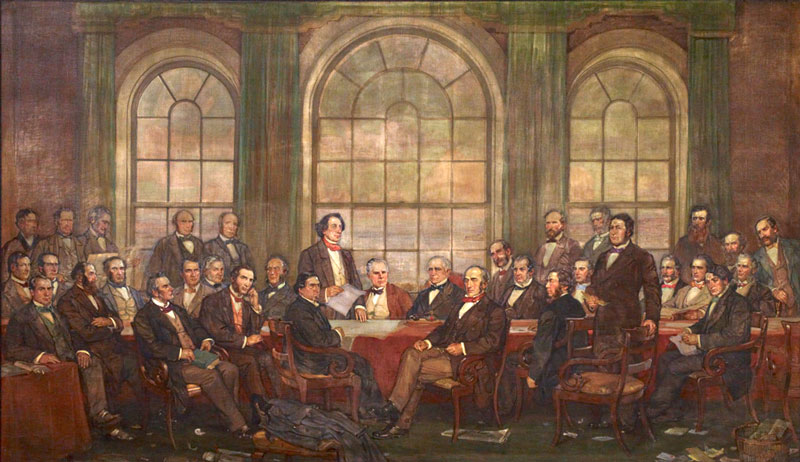
Click to see a larger image
The Fathers of Confederation by Frederick Spronston Challener, 1917-1919
Government of Ontario Art Collection
Accession no. 605057, Archives of Ontario
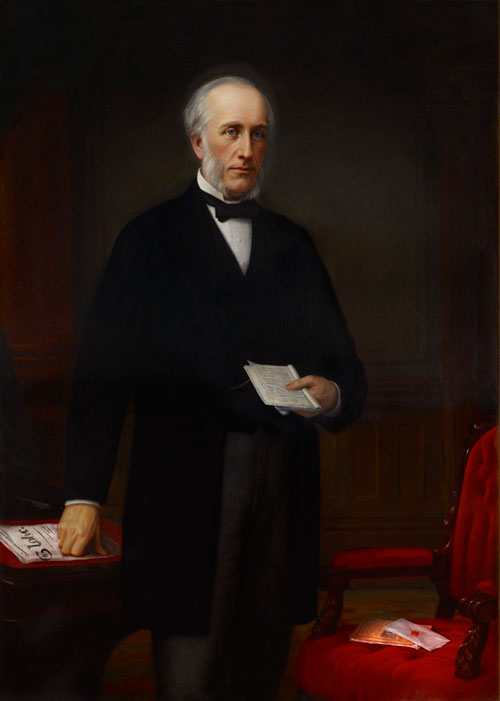
Click to see a larger image
Hon. George Brown by John Colin Forbes, donated 1889
Accession no. 692667,
Government of Ontario Art Collection Archives of Ontario
George’s letters to Anne during this period provide a unique, private insight into Confederation Era politics.
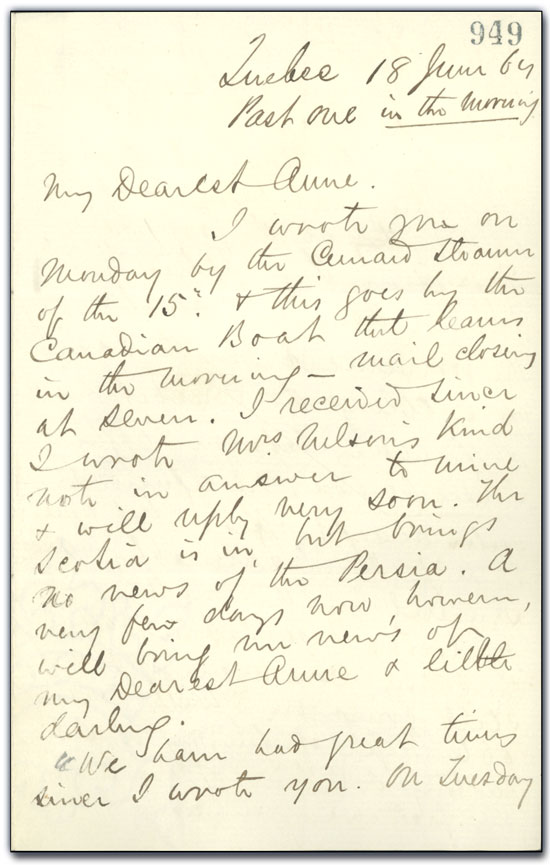
Click to see a larger image
Letter from George Brown to
Anne Brown, 18 June 1864
George Brown papers
MG 24 B 40, volume 5, pages 949-950
Library and Archives Canada, I-89402-001
[Page 1]
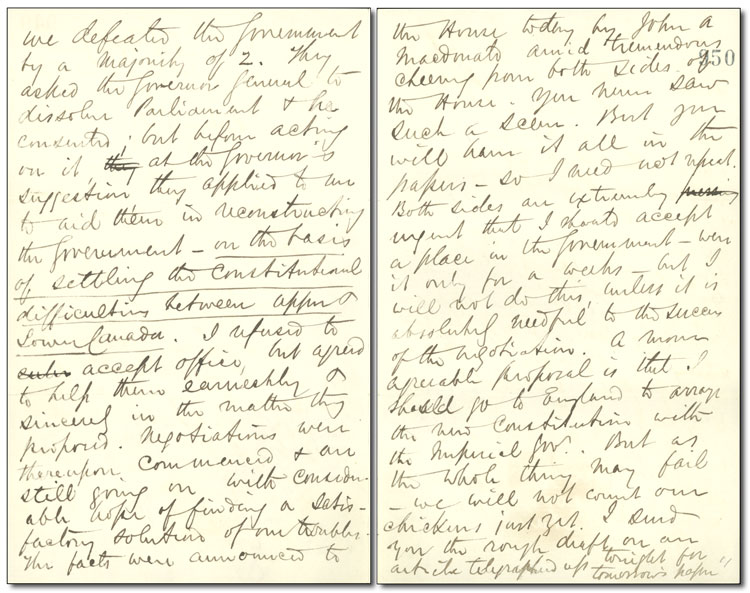
Click to see a larger image
Letter from George Brown to
Anne Brown, 18 June 1864
George Brown papers
MG 24 B 40, volume 5, pages 949-950
Library and Archives Canada, I-89402-002, I-89402-003
[Page 2 & 3]
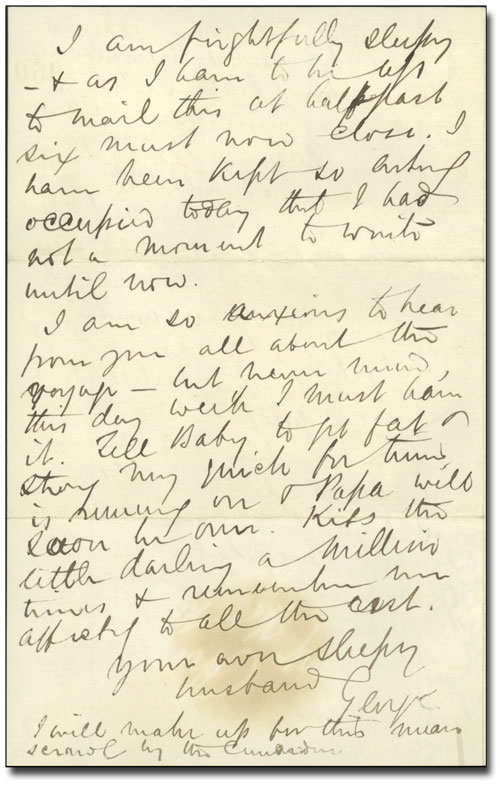
Click to see a larger image
Letter from George Brown to
Anne Brown, 18 June 1864
George Brown papers
MG 24 B 40, volume 5, pages 949-950
Library and Archives Canada, I-89402-004
[Page 4]
|
“We have had great times since I wrote you. On Tuesday we defeated the Government by a majority of 2. They asked the Governor General to dissolve Parliament [and] he consented; but before acting on it, at the Governor’s suggestion they applied to me to aid them in reconstructing the Government – on the basis of settling the Constitutional difficulties between Upper [and] Lower Canada.” -George to Anne, 18 June 1864 |
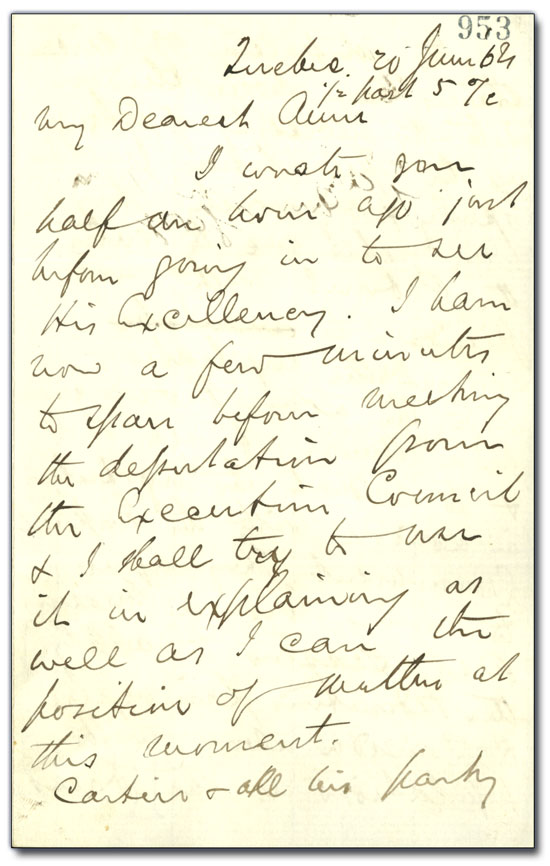
Click to see a larger image
Letter from George Brown to Anne Brown,
20 June 1864
George Brown papers
MG 24 B 40, volume 5, pages 953-954
Library and Archives Canada, I-89403-001
[Page 1]
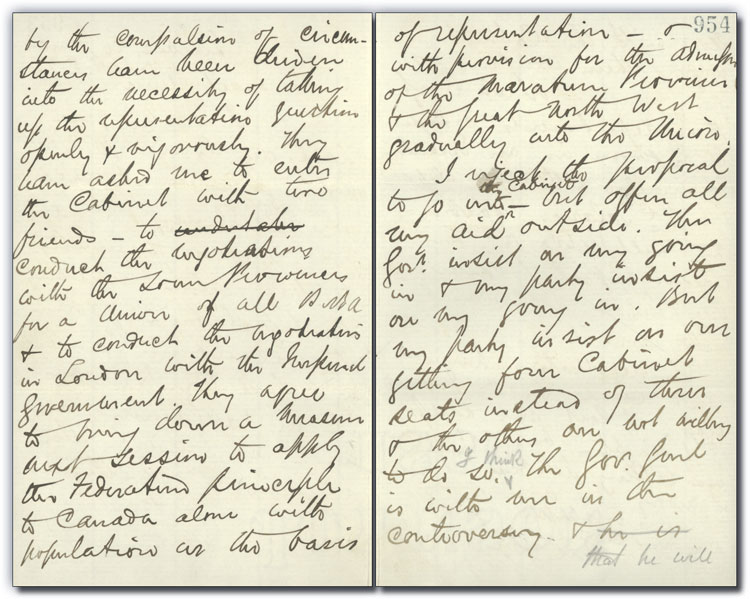
Click to see a larger image
Letter from George Brown to Anne Brown,
20 June 1864
George Brown papers
MG 24 B 40, volume 5, pages 953-954
Library and Archives Canada, I-89403-002, I-89403-003
[Page 2 & 3]
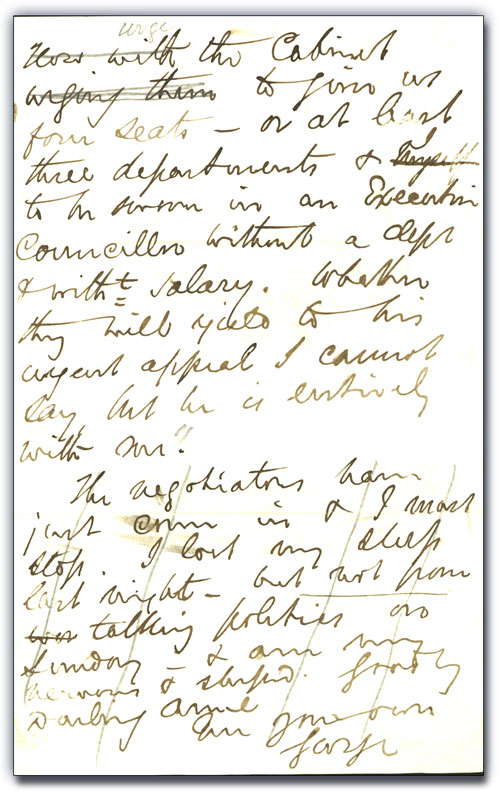
Click to see a larger image
Letter from George Brown to Anne Brown,
20 June 1864
George Brown papers
MG 24 B 40, volume 5, pages 953-954
Library and Archives Canada, I-89403-004
[Page 4]
|
“ [The Conservatives] have asked me to enter the Cabinet … to conduct the negotiations with the Lower Provinces for a Union of all BNA [and] to conduct the negotiations in London with the Imperial Government. They agree to … apply the Federation principle to Canada alone with population as the basis of representation - [and] with provision for the admission of the Maritime Provinces [and] the Great North West gradually into the Union.” -George to Anne, 20 June 1864 |
Records from George’s trips to London, England – when he and others, including John A. Macdonald, convinced the Imperial Government to support Canadian Confederation - show the social side of politics during the era.
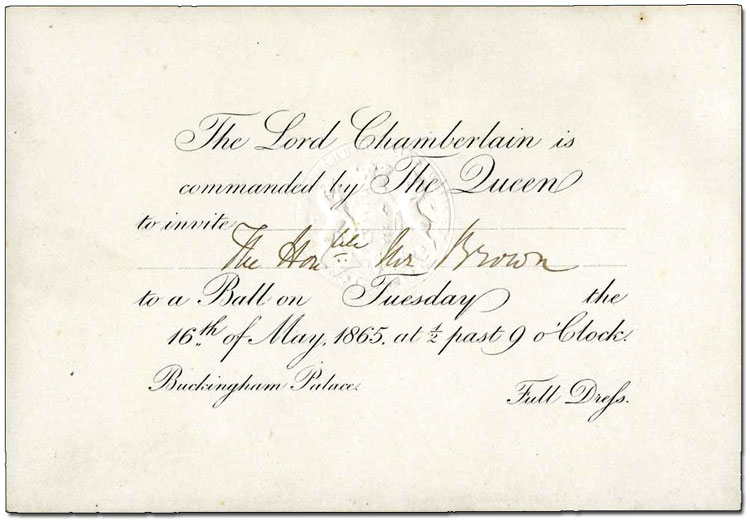
Click to see a larger image
Royal invitation to George Brown, 8 May 1865
George Brown family fonds
F 21-8-0-4
Archives of Ontario, I0073505
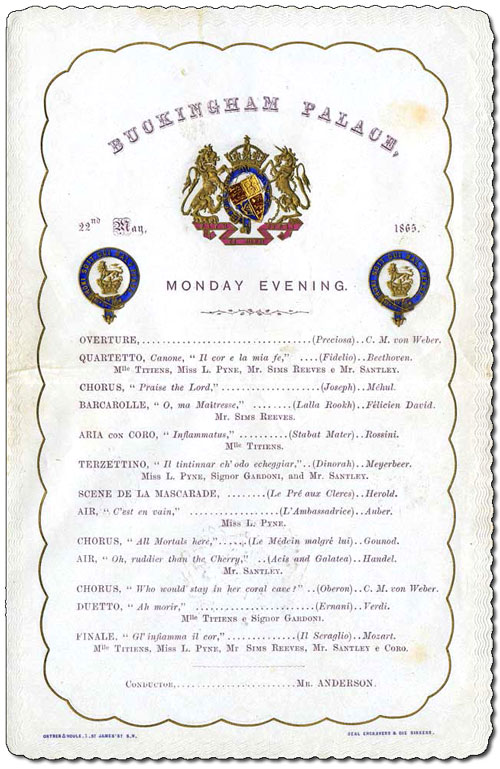
Click to see a larger image
Buckingham Palace song bill, 22 May 1865
George Brown family fonds
F 21-8-0-3
Archives of Ontario, I0073496